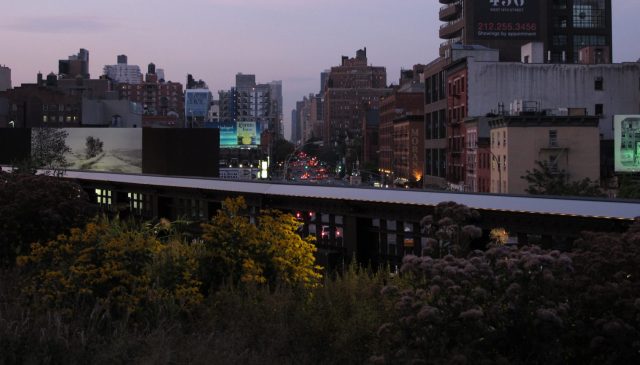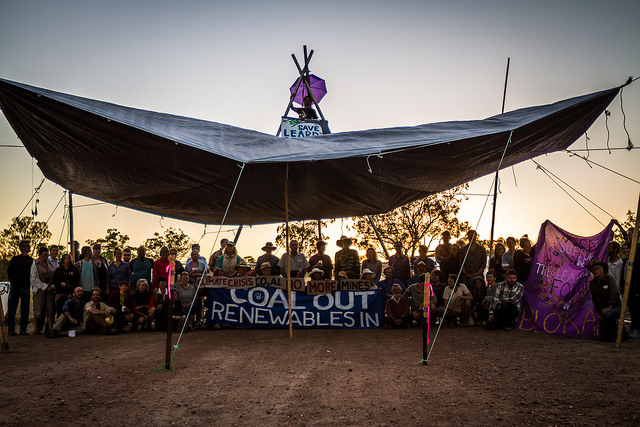Dragon Dreaming offers simple, objective and playful tools for visionary processes, planning, implementation, evaluation and celebration to make our dreams come true. Thus it helps building a degrowth society.
We have a world economy where eight men have a wealth equivalent to more than 50 per cent of the world’s people, while three billion try to live on less than three dollars a day. We are rapidly polarizing into two populations, one obese the other malnourished, as a consumerist world rushes forward seeking lifestyles that result in rapid depletion of the resources upon which our life depends. All of this is a result of what is called “growth”.
How are we going to solve these problems? Pierre Teilhard de Chardin gave one answer in 1947, in his essay on “The Spiritual Repercussions of the Atomic Bomb”:
“The age of nations is now passed. If we would not perish, we must shake off our ancient prejudices and build the Earth…. The choice is a choice between suicide or love, and if one feels they can avoid this choice, they have chosen suicide.”
Choosing Love – the Dragon Dreaming Way
These radical words bring up a painful subject. Every ecological activist has to answer the question, “how to reach out to people? how to make them change their lives in a way, to help life itself to survive?” Many fear we are locked on to the path of a collective suicide, and for just that reason alone some seem to say: “I better take now all I can get, who knows, what will come”. This shortsightedness is planetary madness.
Building a postgrowth society requires the individual to decide to change their lives, to abandon many accustomed things, but it also promises a new quality of life. This is the promise of something much deeper, the dream of a future worth living in.
But who are those who still believe that it is possible to feed all people on earth, to end wars, to let children worldwide grow in dignity, preserve biodiversity etc.? Who allows oneself to dream, to unlock a deeper source of power? This is the precondition for the first step. We first have to step off the accustomed paths of Business as Usual (BAU), if we are truly to live by our own inner values. Unfortunately such dreams are not taken seriously by the BAU world. They are ignored and abandoned, buried deeply and finally forgotten.
Dragon Dreaming is a means to make such dreams a reality. Every project ever done on the planet, ever since Imhotep built the first pyramid in Egypt, has begun as the dream of one person. Based upon the evidence of every day life, however, it would seem that possibly 90 per cent of projects get stuck in this
“Dreaming Stage”. The reason why, is that if one is to make their dreams come true, they first have to share their dream, and build a team of relationships around the dream that support them in making it happen. The project needs to “die” as an exclusive dream of the initiator so it can be reborn as the collective project of an enthusiastic group.
The second stage for a successful project is a
“Planning Stage”, to take one’s team and make a plan. But if you start collecting plans, what you quickly discover is that 90 per cent of project plans do not work according to plan. When one examines most “plans” that are made, they are built by the “head” of an organization and left to the “body” of the organization to implement. Participants feel they will be judged and condemned if they truly say what they think, and stay locked in a “culture of silence”. What happens is that conventional government and business planning just creates two groups of people who can blame the other when things go wrong. They may be aware of the possibilities, have designed a strategy and tested it, but if they cannot reconsider the alternatives, the project will go off the rails.
A successful project, therefore, demands that the
“Planning Stage” and the
“Doing Stage” are properly and effectively integrated. Thus to make the plans come true and for the dream to have a chance of success requires continuous and rapid feedback from the environment to the individuals involved. Studies of projects; small business start-ups, government initiatives, not for profit organisations, social activities of all kinds, show that 90 per cent of them generally fail within three years, usually with “burn out” of the initiator and his or her team.
A forth step has to be integrated, a process, built upon recognition and acknowledgement, of reflection and effective perception of what has been done: an authentic
“Celebration Stage”. We have found from experience in Dragon Dreaming that effectively 25 per cent of every project, if it is to be truly successful, needs to be spent upon such celebration, acquiring the skills the team required and seeing the transformative results of their project and discerning the wisdom that leads to reflection on the total project.
Given the statistics on failure, discussed above, it would seem that with conventional BAU methods, only one in a thousand dreams comes true. People know that and so give up their dreams. But as Australian Aboriginal people know, a people who have lost their dreaming have lost part of their soul. In Dragon Dreaming our aim is to change this negative picture. These four steps: Dream, Plan, Do and Celebrate, lie at the heart of successful projects conducted anywhere, not just those through Dragon Dreaming.
Dragon Dreaming thus offers simple, objective and playful tools for visionary processes, planning, implementation, evaluation and celebration to make our dreams become true.
What is the dream of Dragon Dreaming?
The underlying value of Dragon Dreaming is the Creation of a win-win-win-culture:
- a win for all individuals involved – personal growth
- a win for the community in which the project is integrated – supporting community building
- and a win for the Earth - contributing to the well-being and flourishing of life itself
In a culture, where we can be sure that it is possible to meet everyone’s needs and to take dreams seriously, it is no longer necessary to fight against each other in order to prevail. Growth, based on competition, status and a fight for more in such a context is going to be useless and absurd, and risks a lose-lose scenario where all will suffer. It is going to be much more useful to share resources, to consider a gift-economy, to live in community, to work less and to win time for voluntary work. With such a strategy a postgrowth-society is emerging.
There is one actual dream, we want to invite you to: the Dragon Dreaming Transition Lab. It is like a humming beehive. 60 people from all over the world gathered at a utopian testing ground. Together they will press ahead into a transition with projects – experimenting with future-oriented methods of designing their work, promoting collective creativity and community building. Their aim: to produce the brightest future we can imagine together.
At the moment this is still no more than a vision. That’s why all those who commit themselves to a better world in projects are invited to make their dreams come true in September 2017. This is when the
Dragon Dreaming Transition Lab starts in the
eco village Sieben Linden (Germany), where people can co-creatively advance their transition projects– attended and supported by the community and expert Dragon-Dreaming-Trainers.

